On 1 October 2021, Natasha’s Law will come into effect bringing with it a raft of regulations with which, many businesses across the UK will need to be compliant.
The new food legislation will require businesses across England, Wales, Scotland and Northern Ireland to provide full ingredient lists and allergen labelling on foods packaged for sale on the premises.
Ahead of the new rules coming into force, we have conducted research that delves into how businesses are shaping up for the regulation.
Five key stats around business readiness ahead of Natasha's Law
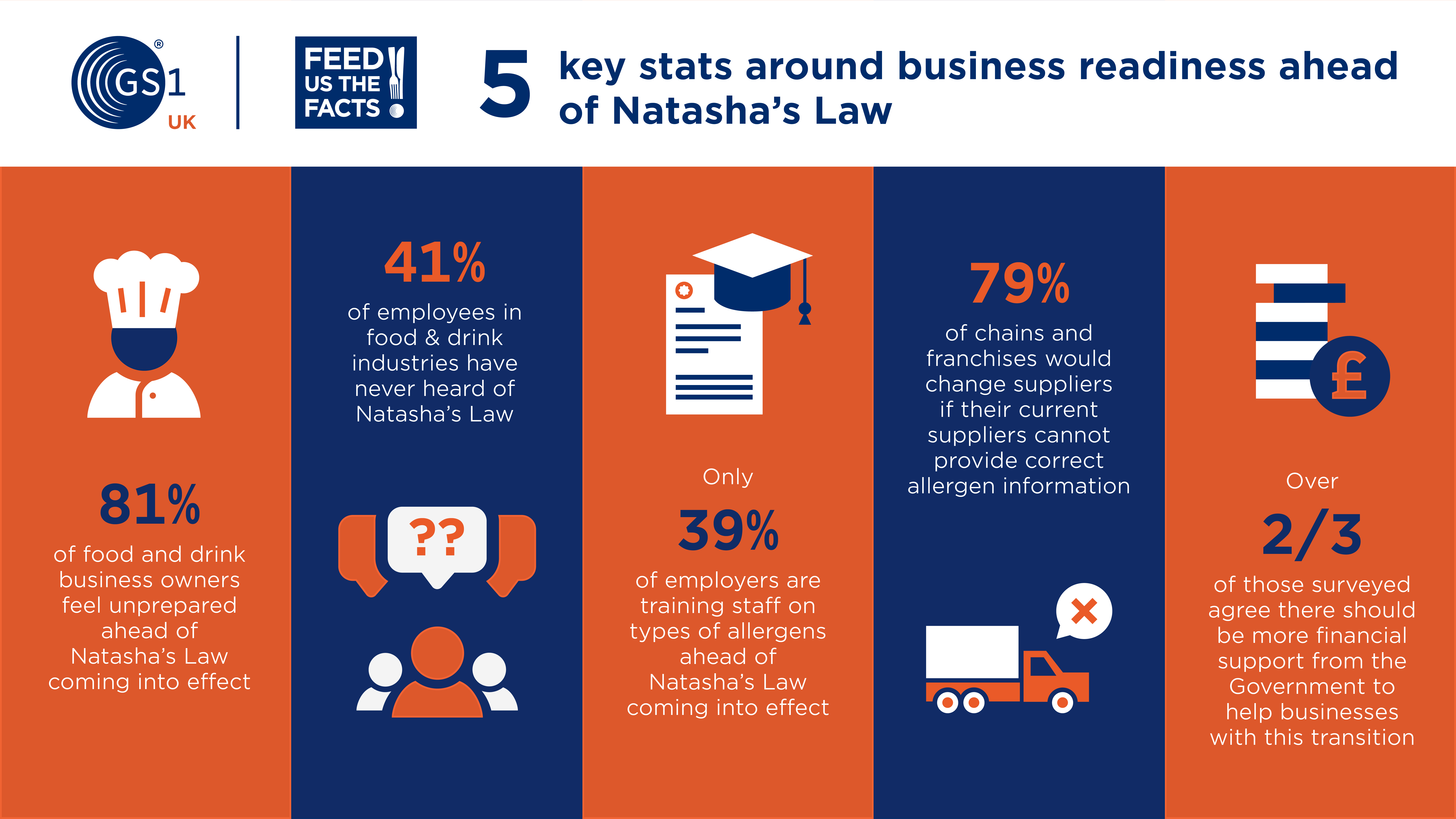
Our new study of businesses – which includes food manufacturers, wholesalers, grab and go operators and more - has shown that whilst the food and drink industry is in strong agreement that food allergen labelling should be compulsory, many are still unaware of Natasha’s Law.
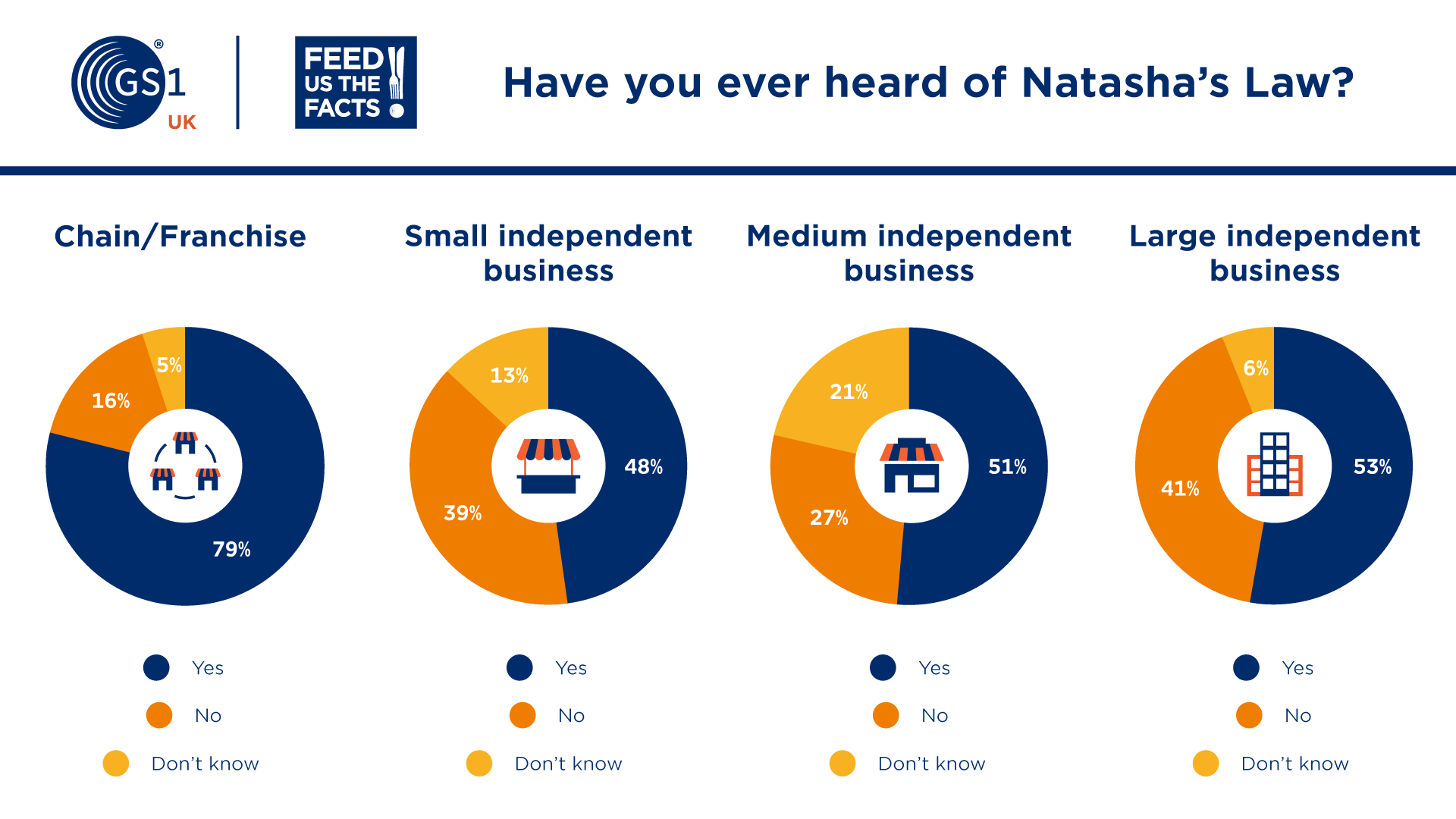
The new regulations will not just affect one area of the food and drink industry, Natasha’s Law will have far reaching affects across the supply chain. From nationwide chains and franchises to small independent businesses, these are changes that will have an industry-wide impact. Yet, our research has revealed a stark level of unpreparedness across all sizes of businesses.
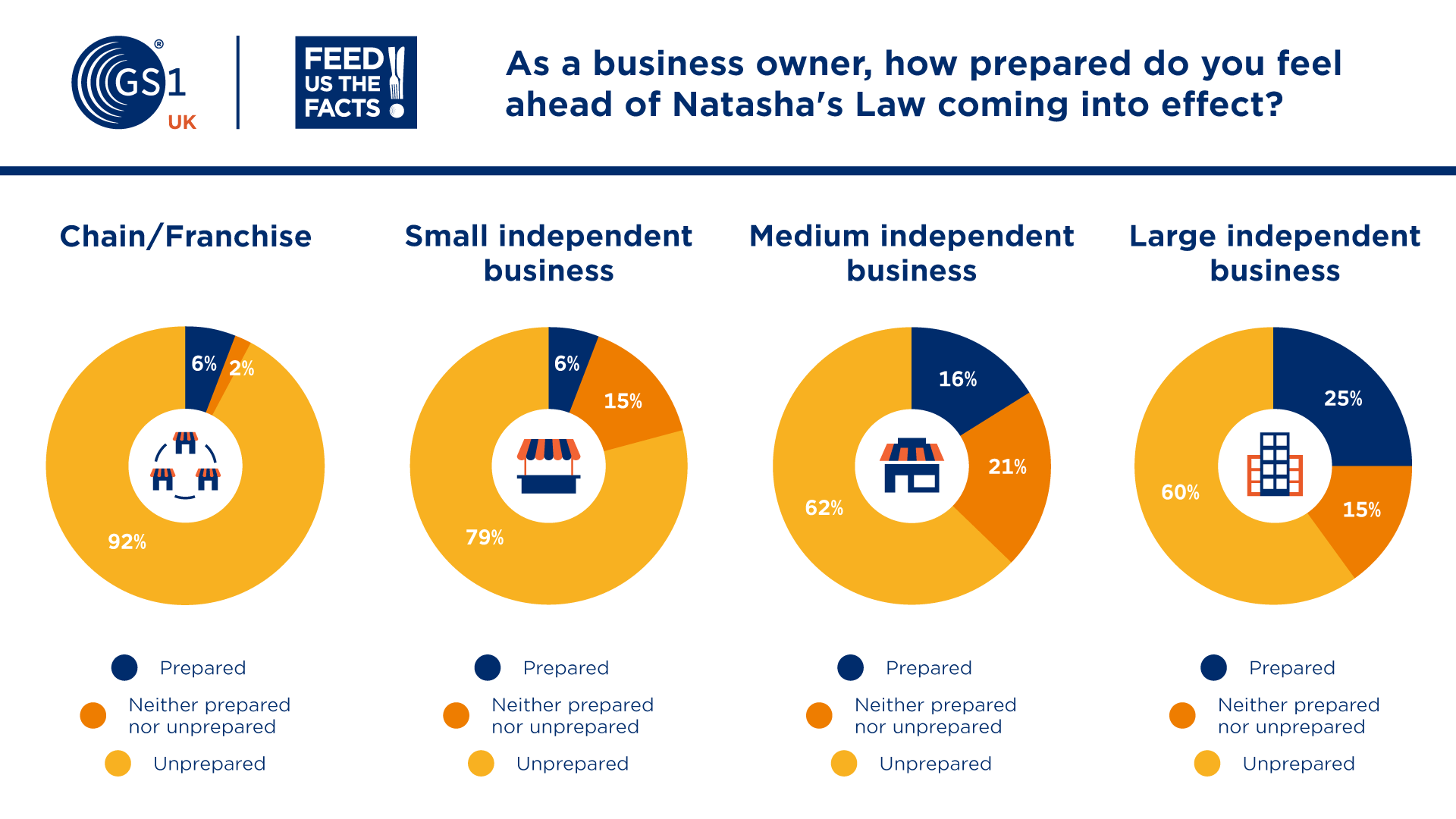
Whilst there is no doubt that the increased transparency within the food industry will protect consumers, research findings have shown that across the industry, steps are not being taken in order to safety navigate the changes.
In fact, the data shows that, alarmingly, only 39 per cent of businesses are providing training on types of allergens and more than one in five say they are awaiting further training and guidance.
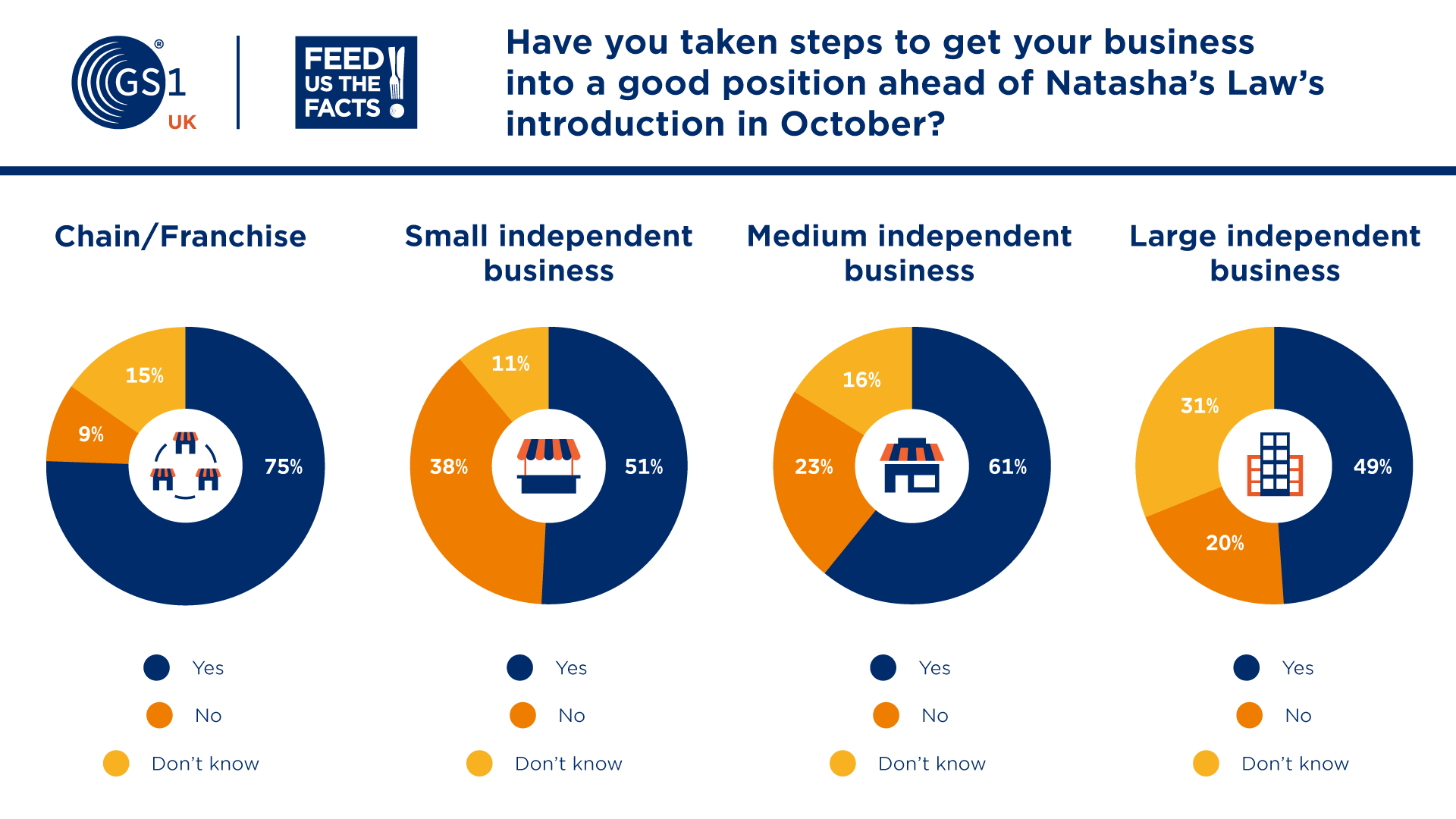
The new regulations could pose problems and challenges for businesses across the supply chain. The results showed an overwhelming agreement from business owners that if suppliers cannot provide the correct allergen information, then they will change suppliers. This is shown to be of utmost importance amongst chain and franchise owners, with 79 per cent agreeing that this would be the case.
The top 5 steps businesses are taking ahead of 1 October
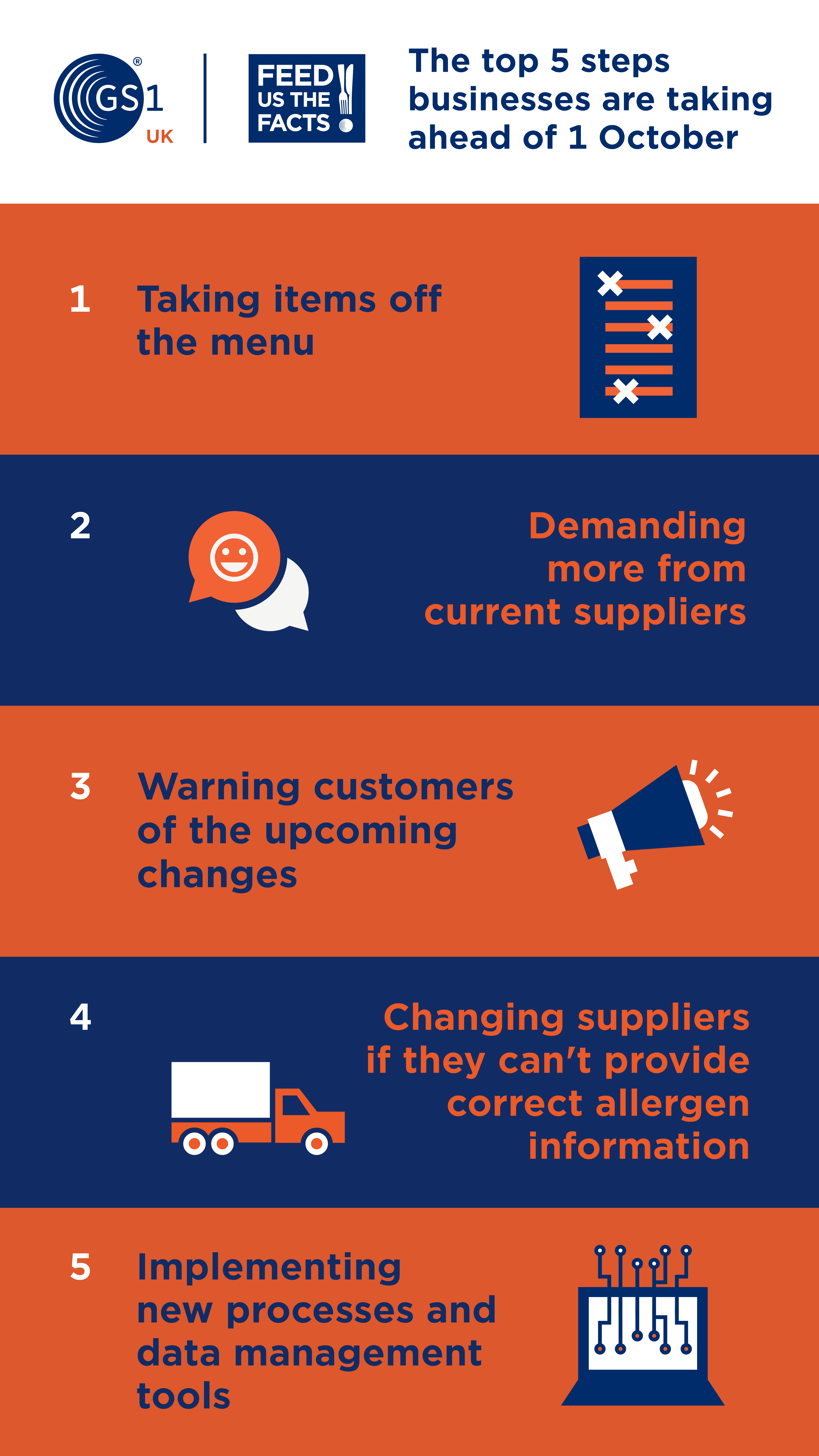
What the future looks like
One of the biggest concerns surrounding Natasha’s Law is whether businesses will be able to accurately get up to date allergen information across their business and to the hands of customers. Therefore, it is vital that the whole food supply chain has the ability to capture and access the full range of allergen data to implement the requirements of Natasha’s Law.
To successfully comply with Natasha’s Law we believe that the digitlisation of the supply chain is crucial in order to help businesses get up to date allergy information as recommended in the recently released National Food Strategy.
We believe that 2D barcodes – like a QR code or DataMatrix – should be used on a product's packaging, no matter what type of product it is. These barcodes can hold significantly more information about a product and can also link to additional data sources which either a supplier or consumer can access through a quick scan. By having a set of global standards product information can be shared in a standardised way in real-time, making it an easier process than the current back-and-forth over email and phone between supplier, wholesalers and sellers – a certain recipe for misinformation and confusion.
To achieve this, GS1 standards must be used to ensure information can be accurately collected in a way that will ensure interoperability between a myriad of systems and technology platforms.
For further information or requests for interviews, contact Max Fairhurst, max.fairhurst@redbrickroad.com, 07799 739438.
